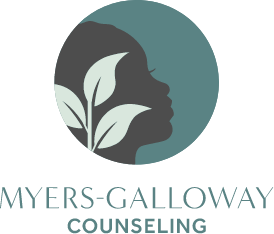The Strong Black Woman Myth Is Hurting Us—Here’s How We Break Free
Ever feel like you have to be strong… all the time?
Like no matter how heavy the load gets, you’re expected to carry it with grace, never complain, and definitely never cry?
You’re not alone—and you’re not imagining it.
This idea—the “Strong Black Woman” myth—has deep roots. But while it may look like resilience on the outside, it often hides pain, loneliness, and the denial of our most basic needs.
Let’s talk about why it’s time to let it go.
What Is the Strong Black Woman Myth… Really?
The myth paints Black women as superhuman—endlessly nurturing, unwaveringly independent, and immune to pain.
It’s the idea that:
You can handle anything life throws at you.
You should never ask for help.
You’re responsible for everyone else’s well-being—but not your own.
Sound familiar?
Here’s the truth: This belief system isn’t empowering. It’s exhausting. It’s isolating. And it keeps us from being seen as full, complex human beings who also need care, support, and rest.
It’s Not Strength—It’s Survival
Many of us were trained to be strong. From a young age, we were taught to:
Hide our emotions.
Step up when the adults in our lives stepped out.
Carry burdens we didn’t choose—especially in families where parentification was the norm.
We were told to be “good girls.” To be grateful. To stop complaining. And so, we silenced our pain.
But that wasn’t strength. That was survival. And survival mode is not meant to be permanent.
The Cost of Always Being Strong
When “strength” becomes your only option, here’s what it really costs:
Emotional Burnout – You give to everyone but yourself.
Relationship Imbalance – You attract and settle for people who take but rarely pour back into you.
Mental Health Issues – Anxiety, depression, and even physical illness can build quietly behind the mask of strength.
Identity Loss – You forget who you are outside of your responsibilities.
You were never meant to carry it all. And you definitely don’t have to anymore.
So What Does Healing Look Like?
Healing looks like finally telling the truth—about how tired you are, how much you’ve held in, and how deeply you crave peace.
It looks like:
Saying “no” over and over until you can do it without guilt.
Asking for help (and not apologizing for it).
Resting, even when the to-do list isn’t done.
Choosing softness instead of struggle.
It also looks like therapy—especially with someone who sees you, who understands the layers of cultural, emotional, and generational trauma behind that armor.
At Myers-Galloway Counseling, we specialize in helping Black women untangle themselves from parentification, people-pleasing, and performance-based self-worth. We help you rediscover you—beyond the cape, beyond the myth.
You Don’t Have to Be the Strong One Anymore
You don’t need to earn rest. You don’t have to explain your pain. And you don’t need permission to choose you.
If this speaks to your soul— Let us walk with you as you learn how to take off the cape and choose freedom instead.
🖤 Book your FREE Phone Consultation today. Let’s talk about what you need for once.
🎥 Watch the full episode on Youtube, where we share what it really looks like to live under the pressure of being the go-to person—and how to break free from that identity.
💬 Final Thought
Being strong helped you survive. But healing will help you thrive.
Let’s start that journey—together
